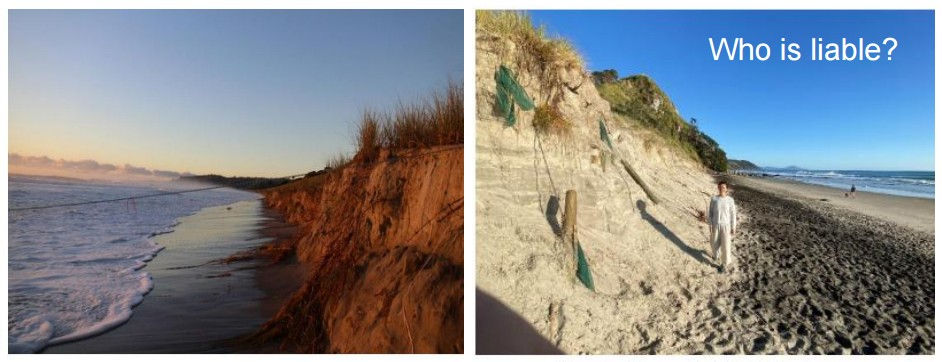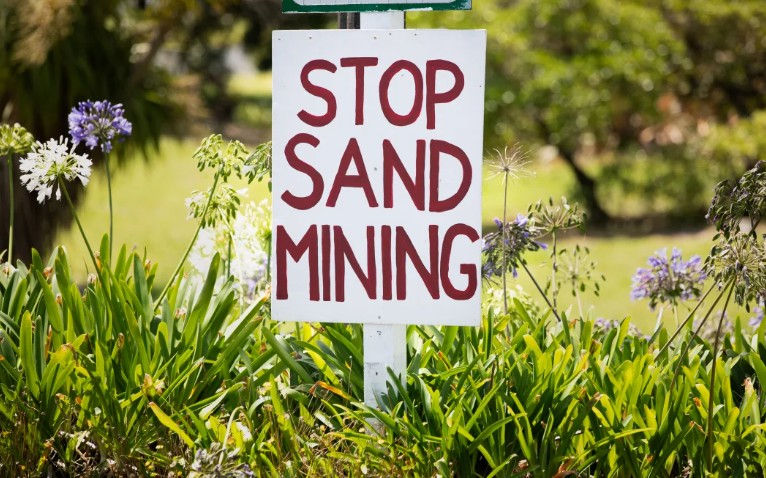Fast-Track Amendment Bill Challenged at Select Committee
- Nov 25, 2025
- 3 min read
A case against the Fast-Track Approvals Amendment Bill to the Select Committee was presented by General Manager, Natalie Jessup today, using McCallum Bros Ltd's proposed seabed mining operation as a stark example of the legislation's dangers.
Speaking before the committee, Natalie detailed opposition to the bill highlighted fundamental flaws that would undermine proper environmental and economic scrutiny.

The Te Akau Bream Bay Case Study
McCallum Bros Ltd's application to mine 8.45 million cubic metres of sand over 35 years from the seabed off Te Akau in Bream Bay would generate $270 million in revenue for McCallum Bros Ltd, a privately held company owned by Callum and Jan McCallum.
However the local community benefit is zero dollars. The environmental cost is permanent as this sand is non-renewable.
There is no "Sand Crisis"
Leading economist Hayden Green's scathing assessment of the company's economic analysis was shared including his findings that the reports produced by McCallum Bros Ltd were "manifestly inadequate and demonstrably flawed," with transport calculations "utterly lacking in logic" and emissions savings "entirely illusory."
A recent report, commissioned by New Zealand's biggest engineering consultancy BECA, also shows a huge surplus of sand currently available, with resources exceeding demand by 350 per cent.
Auckland demand is 310,000 to 610,000 cubic metres per year but total alternative capacity could exceeds 16 million cubic metres per year. Brookby Quarry alone produces 460,000 cubic metres of manufactured sand. Multiple Waikato and Bay of Plenty quarries have combined capacity exceeding demand.
There are two main sand suppliers currently operating in Northland including Semenoff Sand Supplies Ltd and Northland Sand Supplies Ltd, which already meet all of Northland's sand requirements.
Track Record of Breaches
McCallum Bros Ltd's have gouged 3-metre-deep trenches in the sea floor at Mangawhai-Pakiri operations where the company, which was discovered by local man Damon Clapsha. Mining activity over many years was not properly monitored by Auckland Council.


The Mangawhai sandspit has lost over 420,000 tonnes of its non-replenishing sand, yet McCallum Bros chief operating officer Shayne Elstob claimed to be unaware of any evidence linking sand extraction to the sandspit's decline.
McCallums have mined the Mangawhai-Pakiri coastline for more than 80 years and Dr Phil McDermott, a former Massey professor of resource and environmental planning, has warned that a second breach of the sandspit would hit the economy on many fronts.
What's at Stake?
Environmental and economic losses include:
An 82.3 square kilometre regenerating scallop bed worth $726,748 annually and increasing, directly overlapped by the proposed mining zone
Snapper fisheries supporting 14 local boats with six-figure incomes threatened
No additional jobs for the community
Lost livelihoods for fishers and recreational fishing opportunities
Degraded ocean and beaches affecting tourism operators.
The proposed mine site and rejuvenating scallop beds at Te Akau Bream Bay:
The Bill's Broader Implications
The Fast-Track Bill, and consequent amendments, represents short-term thinking over long-term prosperity:
Sixty-day timeframes guarantee poor decisions.
Ministerial interference corrupts independence.
Restricted participation means lack of expertise, panels won't get the information needed.
Economic analysis will be inadequate.
Damage to the environment will be irreversible.
Instead, robust economic assessment, independent expertise, democratic participation, and protection of New Zealand's clean-green brand that the country relies on for tourism and trade is what is needed.
Not Wanted. Not Needed.
In summary, Tāngaro Tuia te Ora recommends to "Reject this bill."








